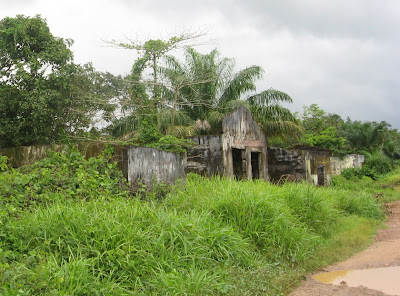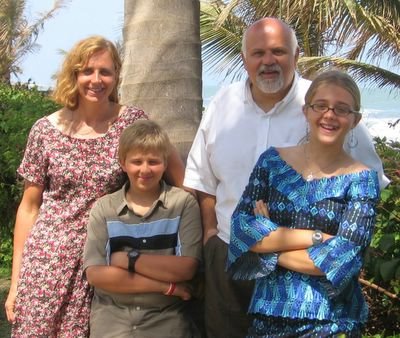Weather: Hot and Humid. Daytime temps in the mid 90s, lows in the mid 70s. Light variable breezes. No precipitation. Less than one tenth of an inch of rain since December 1.
So 2007 is history, and 2008 is upon us. The year promises to be eventful for this country in transition. Year end is the right time to look over our shoulders at what has been accomplished through the efforts of a few of us . We know what we’ve done is small for this nation of three million, but there are thousands joining in to rebuild Liberia. So we feel good about that small part we’ve played. For those who might wonder what we were up to on ’07, here is a partial list.
- Helped develop and launch the first academic program to train professional social workers to support individuals, families and communities get back on track in a postwar environment through the Mother Patern College of Health Sciences. 25 first year students.
- Saw LEAD Inc. expand to two more counties; Liberian staff increased from one to seven. Trained more LEAD businesses, bringing the total to 233 businesses with 71 business loans.
- Working with the fledgling Foster Town Association for Community Transformation (FACT) we constructed a major community market place where a hundred women can come and sell food, clothing, and other products-- plus have a central place to simply connect.
- Conducted many workshops, developed and taught another college course.
- Made important recommendations to the Liberian Government and key players regarding mental health training standards; developed and presented a related national workshop.
- Continued our partner relationship between Calvin College, Kuyper College and Mother Patern College of Health Sciences.
- Provided 22 school children with full tuition scholarships for the entire year through your gifts to our community fund.
- Underwrote eight Foster Town business start-ups (apart from LEAD) through your gifts to our community fund.
- Facilitated new partnerships between
o LEAD and the World Food Program to work with women who are HIV/AIDS positive in creating self-sustainability through business.
o LEAD and the International Labour Organization for the creation of 40 new trash removal businesses, a much needed utility in Monrovia.
o Active Kids Canada and five Liberian schools for building libraries, and the shipment of thousands of textbooks and reading books—arriving January 2008.
o LifeWater and FACT for the construction of four new wells in the Foster Town area.
So it’s been a good year. What does 2008 look like? Well, we will continue our work with LEAD, Mother Patern College, and the Foster Town community. Our volunteer agreement with CRWRC ServiceLink ends June 2008, although we’d like to continue at least into the fall. We have not the first clue as to what follows our work in this country, but since our hands are full while we are here, I guess we’ll find out when we are supposed to about life after Liberia. When we know, you’ll know.
Until then, stay tuned, hang on, enjoy the ride—and have a HAPPY NEW YEAR!
Note: internet is acting up, so no pictures. Next week, we’ll introduce you to another of Liberia’s indigenous creatures: the Two Spotted African Palm Civet! She’s a real sweetheart.




















 Ganta
Ganta 






























